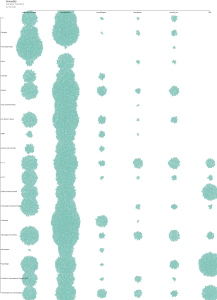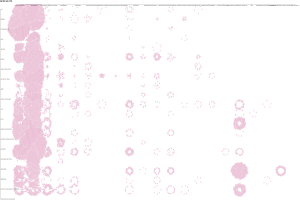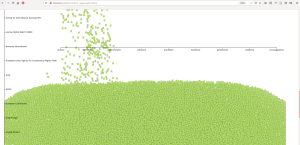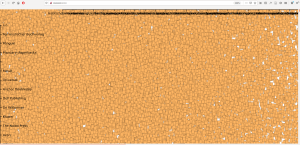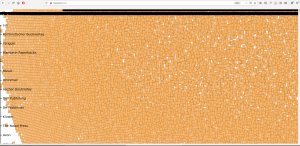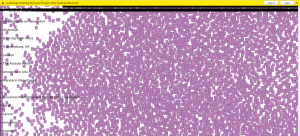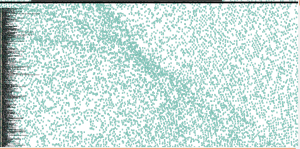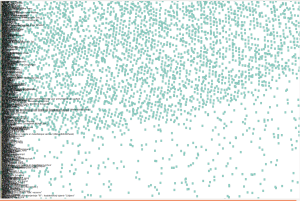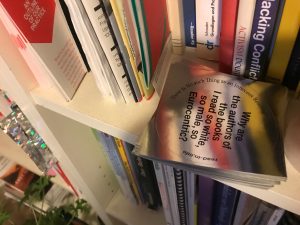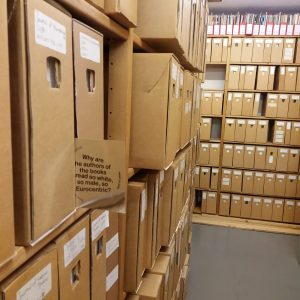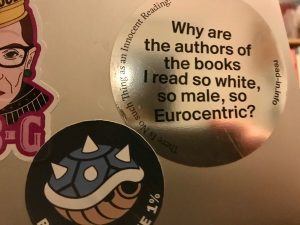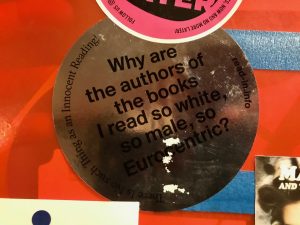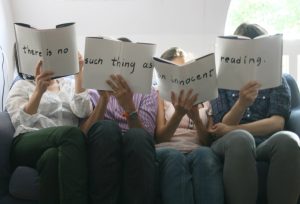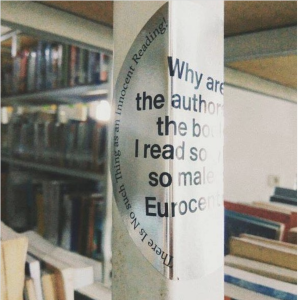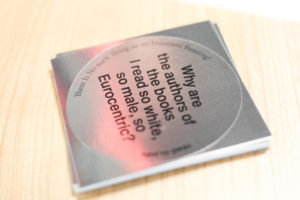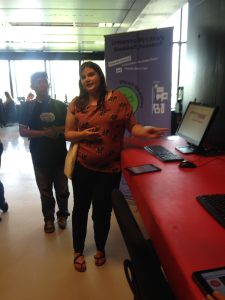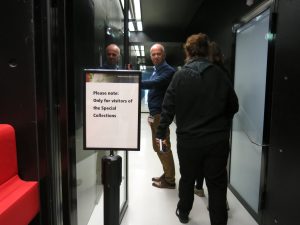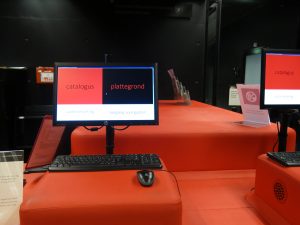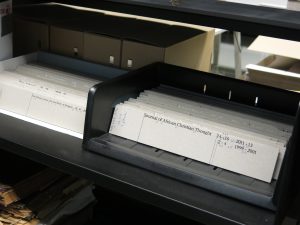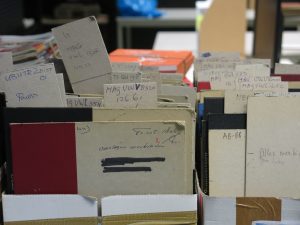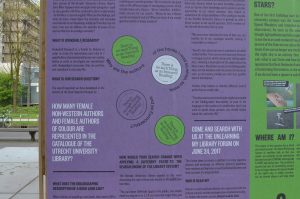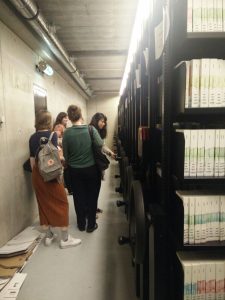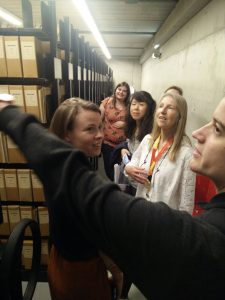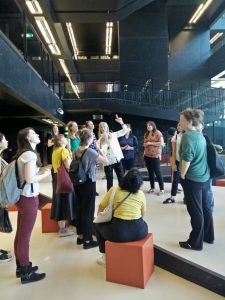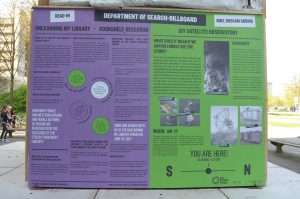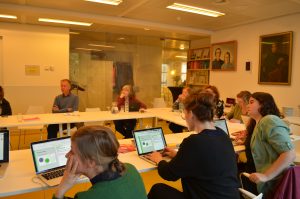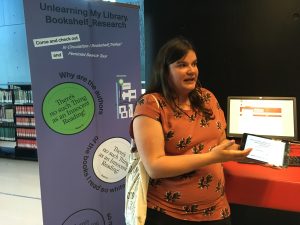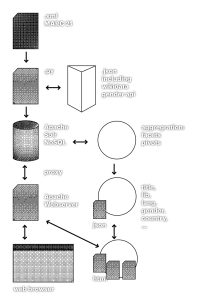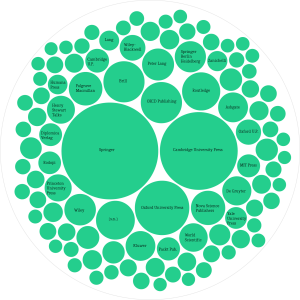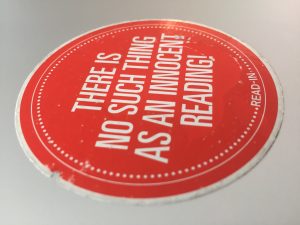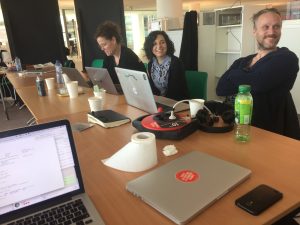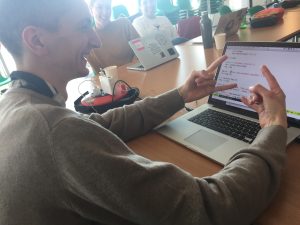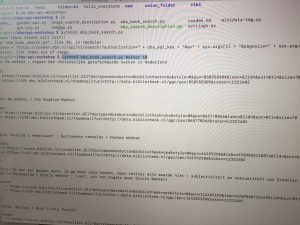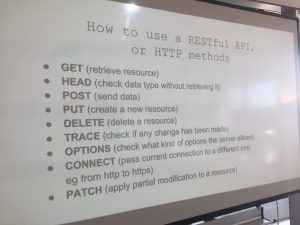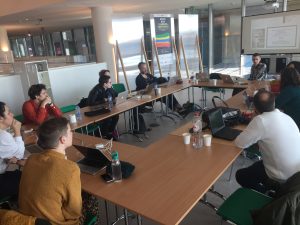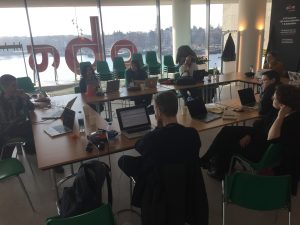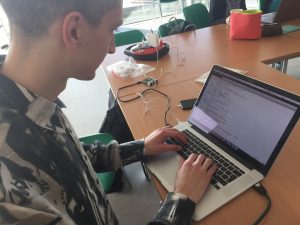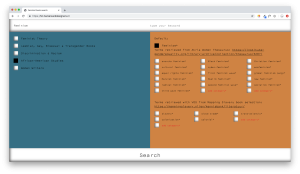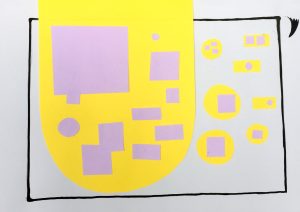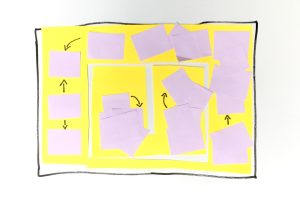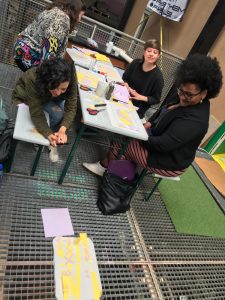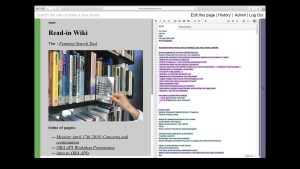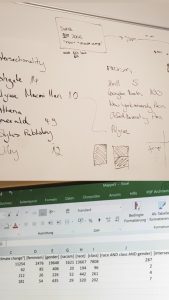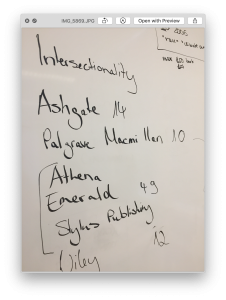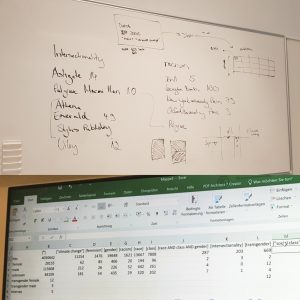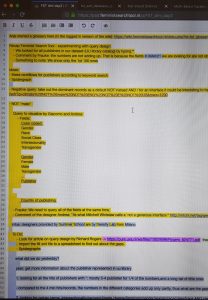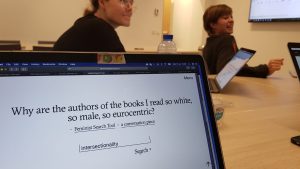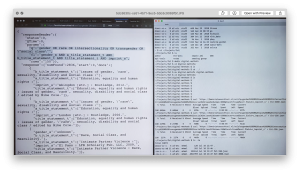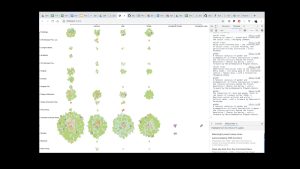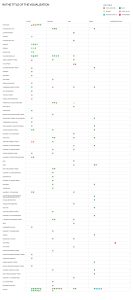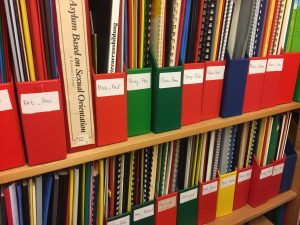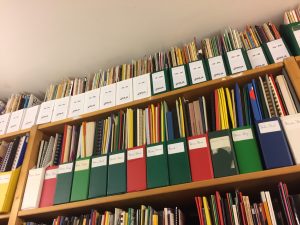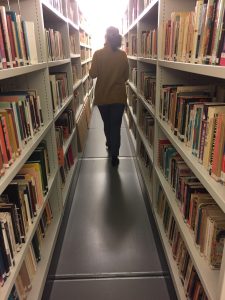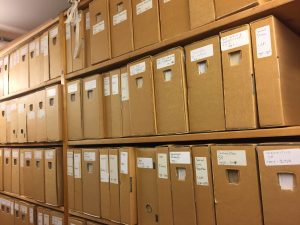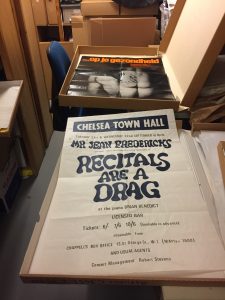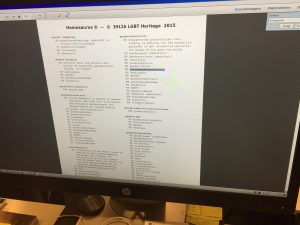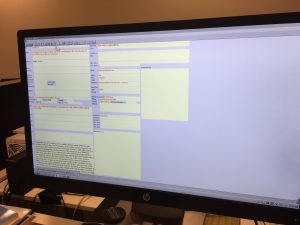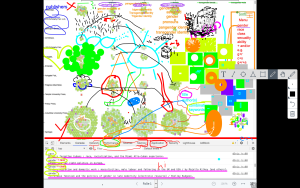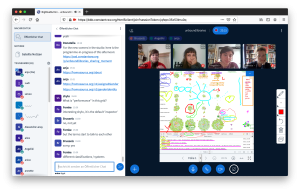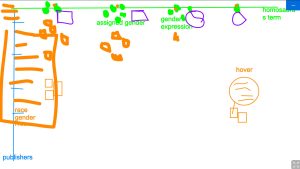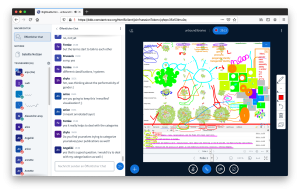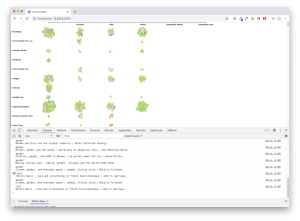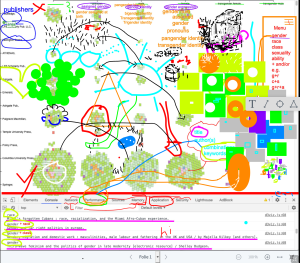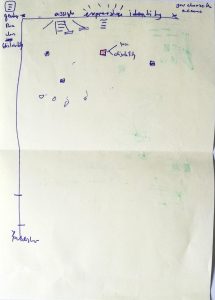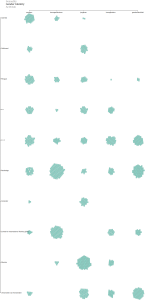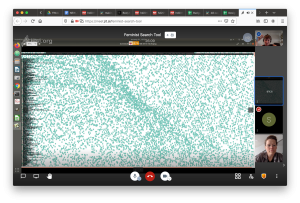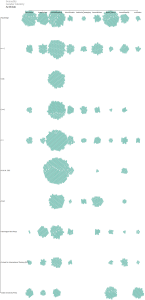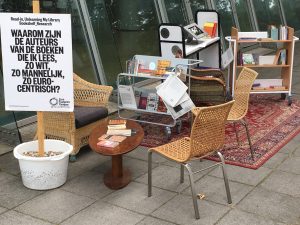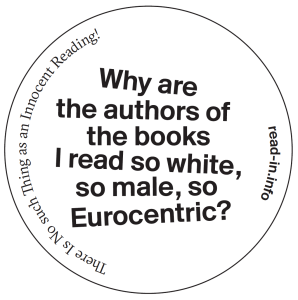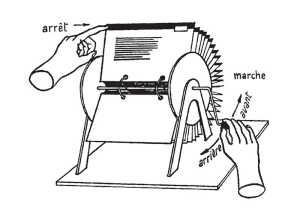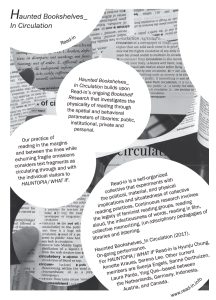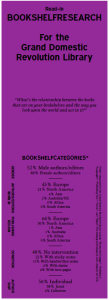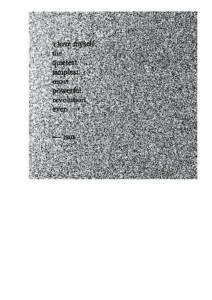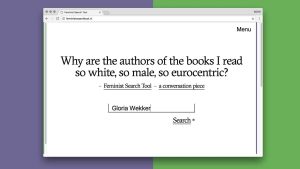Feminist Search Tools (FST) is an ongoing artistic research project that explores different ways of engaging with digital library catalogues and the underlying systems of categorization.
The project sheds light on the hierarchies of knowledge that inhabit Western (digital) library environments, as well as our private bookshelves and reading practices, and how these inform our search movements, putting forth the question: “Why are (the authors of) the books I read, so white, so male, so Eurocentric?”
This web platform functions as a “living archive” that enables users to engage and interact with the wide range of materials created and collected throughout the FST project, while at the same time acknowledging its ongoing nature and allowing for it to keep growing and being reconfigured.
With this web platform, the FST working group, aims to draw attention to the two-fold endeavor that’s been at the core of the project. FST group invites users to join in on the one hand, challenging and intervening with the power structures that library search interfaces (re)produce with the goal to make materials of marginalized groups more accessible in mainstream Western knowledge institutions. And on the other hand, to amplify grassroot initiatives and alternative archives that center knowledge production by marginalized groups and push for more intersectional approaches to search.
To introduce users more easily to the project, this web platform features two conversations by the members of the FST working group:
Conversation 1: “Doing and Undoing Relationships”, 9 March 2020
Conversation 2: “Re-, Un-, Defining Tools”, 17 February 2021
These conversations are intended as an entry point and common thread for the project. They are embedded in a wider web of materials collected, such as annotated research material in form of photos, drawings and screenshots that can be found in the bar at the top of the website and audio fragments that can be found at the right side of the conversation text (different geometric shapes). Both are hyperlinked within the conversation. The design of the conversations is interactive: Users can either use the highlighted text fields that function as filters to make a selection of materials linked to the highlighted term or just use the bar with photos, drawings and screenshots or the audio fragments independently.
Besides these two conversations, the FST platform also documents a range of different prototypes of digital (search) interfaces that have been developed in the course of the FST project. A selection of these interfaces has been made available here:
- Prototype 1: “Feminist Search Tool” (2017), digital interface created in the context of the “Unlearning my Library. Bookshelf Research” project for Department of Search, focused on a selection of records of the Utrecht University Library of works published in the period of 2006 till 2016
- Prototype 2: “Feminist Search Tools”, or also called “visualization tool” (2019-2021), digital interface based on records of IHLIA Heritage Collection & the IHLIA Homosaurus
These prototypes showcase different attempts of toolings of the FST working group that critically and creatively engage with digital libraries catalogues by utilizing the back-ends of library catalogues. The prototypes and the conversations accompanying this process offer new insights on digital library search interfaces that allows for more contextualization in online research in digital library catalogues,and that addresses power structures that library search engines reproduce.

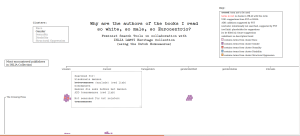

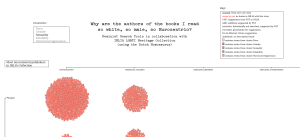


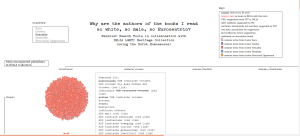
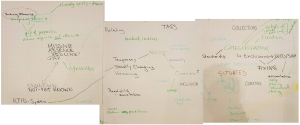
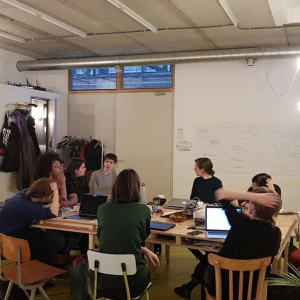
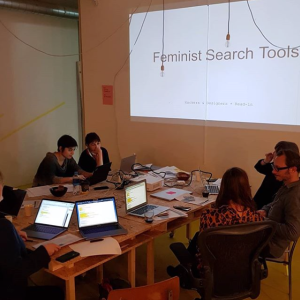
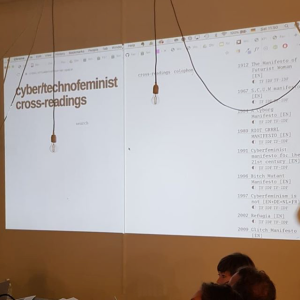
![[ ID ] Silver sticker with the question "Why are the authors of the books I read so white, so male, so Eurocentric?" sticking out of the bookshelf of the IHLIA Heritage Collection, Photo: Thea Sibbel](https://feministsearchtools.nl/wp-content/uploads/2020/11/Thea-Sticker-300x300.jpg)
